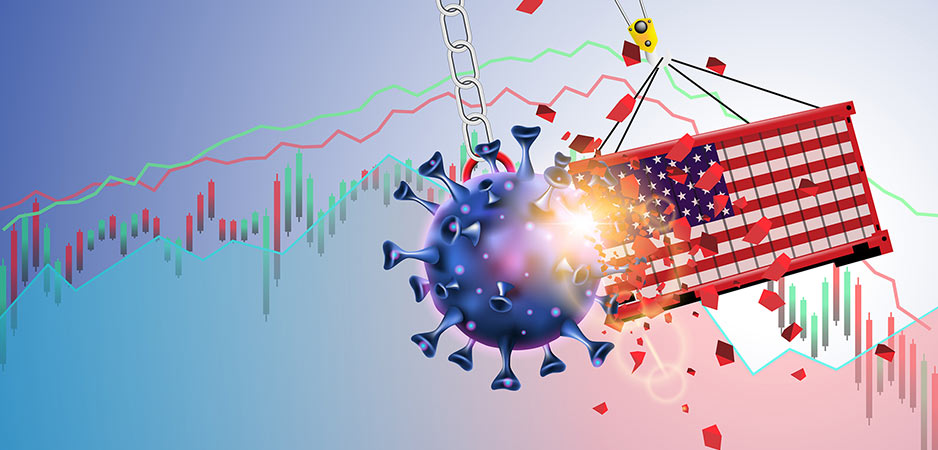This week, to mark the publication of Scott Galloway’s book on the economy, “Post Corona,” Yahoo Finance interviewed the best-selling author, who is also a tech entrepreneur and professor of marketing. Surveying the damage done by the COVID-19 pandemic, Galloway delivers a broadly pessimistic view of the prospects for an economy that he notes no longer cares about people. He highlights the helplessness of ordinary citizens as they confront the drama of growing inequality.
To make his case, Galloway cites some startling statistics. He informs us that 32% of New Yorkers now rely on food banks to survive and that the total wealth of billionaires “reached $10.2 trillion” at the same time as the pandemic was undermining the economic stability of millions of people.
Did Emmanuel Macron Have It Coming?
Yahoo Finance adds its own somber observations, citing data from the US Federal Reserve revealing that the top 1% of billionaires and millionaires now hold a “combined net worth of $34.9 trillion while the bottom 50% has a combined net worth of $7 trillion.” Simply put, the top 1% collectively own five times as much as half of the United States.
Galloway has acquired a solid reputation for tracking the ways in which today’s capitalist system has allowed inequality to balloon. He speaks with the language and the tone of a reformer who sees from the inside how the marketplace functions and how CEOs and investors reason.
But the marketplace is far from the whole story. Galloway seems less interested in how politics and political systems work, as evidenced by the fact that during last year’s Democratic primary campaign, he was an avid supporter of former New York Mayor Michael Bloomberg’s candidacy. Counting on a super-billionaire to rein in the greed of the 1% may sound a bit naive to some. Galloway was also heard praising Senator Elizabeth Warren’s for having “put on a masterclass on how to run a campaign.” With today’s hindsight, this sounds particularly laughable. Warren failed miserably in the presidential primaries, where she never came in better than third, even in her home state.
Despite Galloway’s acute analysis of the doings of monopolistic capitalism and his deep pessimism concerning a possible solution, he surprisingly declares his allegiance to the reigning orthodoxy when he describes capitalism as “the greatest system of its kind, the greatest upward lubricant of the middle class.” What could he possibly mean by “system of its kind?” Are there others “of its kind?” And can capitalism really be called a system? Systems are characterized by systemic logic that ensures the cohesion of all its parts. Galloway describes something that has become deeply incoherent.
When an expert like Galloway paints such a dark picture of our shared economy, most people hope to hear the answer to two questions: Who or what is responsible, and what does a solution look like? Galloway’s response to both questions is inconclusive, if not downright misleading.
On the first question, he clearly drops the ball by exempting the powerful and accusing the powerless: “CEOs are doing their job. It’s we as citizens who are not doing ours. Specifically, we’re not electing public officials that apply the same scrutiny around anti-trust, around anti-competitive behavior, around externalities … So if there’s a culprit here, it’s voters who aren’t electing leaders that hold these companies to the same standards.”
Today’s Daily Devil’s Dictionary definition:
Culprits:
In the capitalist system of justice, inevitably the powerless and poor, who lack the means of proving their innocence, and whose acknowledged share in the guilt exempts those who are truly culpable, who possess the means of paying for their defense
Contextual Note
Galloway focuses on the mechanics of monopolistic capitalism, giving particular attention to tech giants, led by Amazon. He signals the collective failure of all concerned parties to engage in constructive decision-making. When he wonders “if there’s a culprit,” he reveals that he is not thinking of capitalism as a system, but rather as an arbitrary structure with a command center. But instead of examining either the infrastructure (its internal mechanics) or the superstructure (the decision-making apparatus), he lays the blame on “the voters,” who typically have no real choice about either people or policies.
Superficially, Galloway is correct to say that the voters have failed to elect “leaders that hold these companies to the … standards” he believes are important. But the choices voters can make are the result of a pre-selection by two opaque political parties of two “acceptable” personalities who belong to the superstructure. And even if voters did have the power he appears to attribute to them, does that make them the “culprit?” It simply describes an element of a politico-economic ideological structure that has been designed to function in the confused and confusing way it does function.
In today’s political hyperreality, the people are the increasingly unwilling victims of the illusion of democracy, as today’s political chaos demonstrates. They are not the masters of the illusion. It is the illusion that casts them in the role of the culprit.
Historical Note
The current crisis of inequality has led some people to ask a serious question: Are capitalism and democracy compatible?
The economist Peter Bernholz asked that very question in the title of his book published in 2000, “Democracy and Capitalism: Are They Compatible in the Long-Run?” He affirms that they are. He makes the abstract idea of political freedom from constraint indissociable with the notion of economic freedom from constraint. It’s an association Scott Galloway and most serious economists now reject as overly simplistic. Still, that idea remains current in the media and in political discourse in the US.
Bernholz’s thesis relies on two highly contestable notions, the first in the form of a dogma and the second, an axiom. The dogma tells us that the highest value of human society, trumping all others, is the unfettered freedom of the individual. The unprovable axiom states that property rights are the basis of freedom. History and anthropology easily contradict both of these assertions.
Bernholz’s reasoning tends toward self-contradiction. “The Rule of Law,” he asserts “thus implies limits to the scope of legislation: it restricts it to the kind of general rules known as formal law, and excludes legislation either directly aimed at particular people, or at enabling anybody to use the coercive power of the state for the purpose of such discrimination.”
This suggests that the laws applied in courtrooms in a democracy do not represent the law to be obeyed. Most of the wealthiest class seem to have understood this and are understandably comfortable with it. They also understand that the laws effectively applied in courtrooms are specifically designed not to be applied to them, but to the poor.
Bernholz starts with Kant’s definition — that “man is free if he needs to obey no person but solely the law.” But, according to Bernholz’s logic, the law a Kantian subject obeys is not identical with the law of the land. So where will this free individual find the law’s source? Kant has various problematic answers to that question, notably his concept of “categorical imperatives.” Alas, this speculation turns out to be of no practical use to a society struggling with the problem of the oppressive accumulation of wealth and the resulting abuse of power (the manipulation of the law for self-interested purposes), and now enduring a major health crisis.
Political scientist Wolfgang Merkel arrived at a different understanding of the relationship between capitalism and democracy. “Theoretical as well as empirical analyses,” Merkel argues, “are showing an increasing number of contradictions—even incompatibilities—between capitalism and democracy.” Consistent with Thomas Piketty’s analysis in “Capital and Ideology,” Merkel notes what now increasingly resembles a historical fatality: “Since the 1970s, capitalism has changed in a way that has challenged its compatibility with democracy considerably.”
If there was a brief period in the 20th century when something Merkel calls “coordinated capitalism” was viable, it is no longer the case. “Deregulating markets has put a strain on the compatibility of capitalism and democracy, and has made their incompatibilities more visible.”
This is precisely what Galloway complains about. To understand the political implications, he would do well to read Merkel and Piketty. Their verdict is resoundingly clear. The voters are not the culprits.
*[In the age of Oscar Wilde and Mark Twain, another American wit, the journalist Ambrose Bierce, produced a series of satirical definitions of commonly used terms, throwing light on their hidden meanings in real discourse. Bierce eventually collected and published them as a book, The Devil’s Dictionary, in 1911. We have shamelessly appropriated his title in the interest of continuing his wholesome pedagogical effort to enlighten generations of readers of the news. Read more of The Daily Devil’s Dictionary on Fair Observer.]
The views expressed in this article are the author’s own and do not necessarily reflect Fair Observer’s editorial policy.
Support Fair Observer
We rely on your support for our independence, diversity and quality.
For more than 10 years, Fair Observer has been free, fair and independent. No billionaire owns us, no advertisers control us. We are a reader-supported nonprofit. Unlike many other publications, we keep our content free for readers regardless of where they live or whether they can afford to pay. We have no paywalls and no ads.
In the post-truth era of fake news, echo chambers and filter bubbles, we publish a plurality of perspectives from around the world. Anyone can publish with us, but everyone goes through a rigorous editorial process. So, you get fact-checked, well-reasoned content instead of noise.
We publish 2,500+ voices from 90+ countries. We also conduct education and training programs
on subjects ranging from digital media and journalism to writing and critical thinking. This
doesn’t come cheap. Servers, editors, trainers and web developers cost
money.
Please consider supporting us on a regular basis as a recurring donor or a
sustaining member.
Will you support FO’s journalism?
We rely on your support for our independence, diversity and quality.







